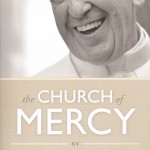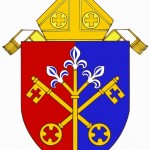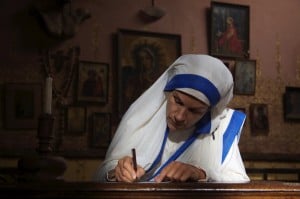“A unified witness” on ecclesiology and moral discernment was the topic of a new joint statement issued this week by the Anglican-Roman Catholic Dialogue in the United States.
The two churches–the Episcopal Church and the Roman Catholic Church–have been in dialogue since 1965, and six years ago they began the current study of ethics and the Christian life in the context of ecclesiology. That round of talks was concluded February 24-25, 2014, at Virginia Theological Seminary in Alexandria, Virginia. The meeting was chaired by Bishop John Bauerschmidt of the Episcopal Diocese of Tennessee; the Roman Catholic co-chairman, Bishop Ronald Herzog of Alexandria, Louisiana, was unable to attend for health reasons.
Their goal in the Joint Dialogue was to achieve greater clarity regarding areas of agreement and disagreement.
Actually, I’m pretty sure I’ve got it figured out where the unresolvable point of disagreement is: It’s in Article 11, which reads, in part:
The Anglican commitment to reform is implicit in the 16th-century Articles of Religion. Article XIX affirms that churches can err in matters of faith, the only solution to which could be corrective repeal and replacement.
Um, no. The Roman Catholic Church, conversely, insists that the Church is infallible. Not that the Pope couldn’t make a mess of roasting a chicken in the Vatican kitchen, or picking the slate in March Madness–but rather, that the Pope and the Magisterium of the Church, when speaking on matters of faith and morals, are protected from error. It’s that promise of Christ to the Apostles, that the Holy Spirit will be with them always until the end of the world. It’s Christ’s promise that whatsoever you loose here on earth will be loosed in heaven, and what you retain will be retained. That promise ensures that the Church which Christ founded, which has the sacred responsibility of carrying forth His message until He comes again, will not err and lead His people astray.
There is one more point in the Joint Statement which found me shaking my fist at the computer monitor. That’s a line in Article 65, which reads,
It is hard to see how our differences in moral theology and ecclesiology will be resolved, and it is not clear to many whether they should be.
That line was doubtless written by the Anglican delegates. For a Catholic, there is objective Truth, and Christ wants us to know the Truth. “I am the Way, the Truth, and the Life,” He tells us. And in His high priestly prayer to God the Father, He prays,
“Father, may they be one, as You and I are one.”
Granted, the purpose of the joint dialogue is to identify areas of unity and division; but deep in the Catholic heart is the desire that all division could be ended, in order for Christ’s prayer to be fulfilled.
In Article 9, the document lays out some of the obstacles to unity which have emerged in recent years. “Particularly challenging for Anglicans and Roman Catholics in recent years,” the Article explains,
“…have been a number of oft-noted ‘new developments which, besides being divisive for Anglicans, present serious obstacles to our ecumenical progress,’ such as the ordination of persons living in openly acknowledged same-sex relationships, as well as the blessing of such relationships, and other persisting problems of moral theology, including questions about abortion, divorce and remarriage, and contraception.”
Well, yes. These serious moral issues, about which the Catholic Church offers clear moral teachings, and over which the Anglican Church declines to exercise authority, will ultimately prevent the reunion for which we pray.
With a focus on two case studies concerning migration/immigration and same sex relations, the dialogue concluded that even if the moral teachings of Anglicans and Catholics diverge on some questions, they also share important common features. The statement delves into these differences and similarities and represents progress toward a more unified Gospel witness capable of addressing contemporary concerns in ways that are useful and attractive to all Christians, as well as larger society. As Bishop John Bauerschmidt of the Episcopal Diocese of Tennessee, the Roman Catholic co-chairman of the Dialogue, said,
“ARC-USA has produced some important statements in the past. This statement represents the latest landmark in our journey together as churches, and is a valuable contribution to an important topic.”
You can read the full text of the statement at the USCCB website.












